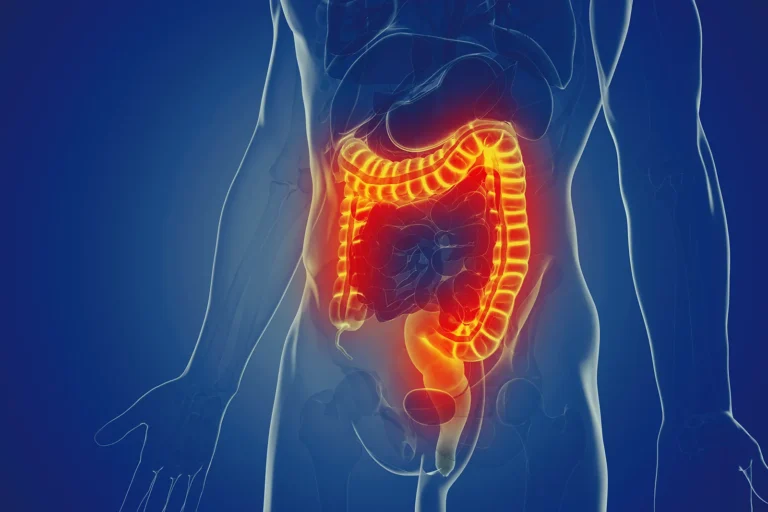Colorectal Cancer

Colorectal Cancer
Colorectal cancer, also known as colon or rectal cancer, is a malignant tumor that originates in the cells lining the colon or rectum, which are parts of the digestive system. It is one of the most common cancers worldwide and typically develops slowly over several years, often beginning as non-cancerous polyps.
Colorectal cancer can cause a variety of symptoms, including changes in bowel habits, rectal bleeding, abdominal pain, and unexplained weight loss. Early detection through screening, such as colonoscopies, can greatly increase the chances of successful treatment. Treatment options for colorectal cancer depend on the stage of the disease and may include surgery, chemotherapy, radiation therapy, and targeted therapies. Public awareness, lifestyle modifications, and regular screenings play a crucial role in preventing and managing this disease.
Causes
The exact cause of colorectal cancer is not always clear, but several risk factors have been identified:
- Age: Colorectal cancer is more common in people over the age of 50, with the risk increasing as you get older.
- Family history and genetics: Individuals with a family history of colorectal cancer or certain hereditary conditions like Lynch syndrome or familial adenomatous polyposis (FAP) have a higher risk.
- Personal history of colorectal polyps or cancer: Having a history of colorectal polyps or a previous diagnosis of colorectal cancer increases the risk of developing the disease again.
- Inflammatory bowel disease (IBD): Conditions like Crohn’s disease and ulcerative colitis, which cause chronic inflammation of the colon, can increase the risk of colorectal cancer.
- Diet: A diet high in red and processed meats, and low in fiber, fruits, and vegetables, is associated with an increased risk of colorectal cancer.
- Sedentary lifestyle: Lack of physical activity and a sedentary lifestyle are risk factors for colorectal cancer.
- Obesity: Being overweight or obese is linked to an elevated risk of colorectal cancer.
- Smoking: Smoking tobacco is a known risk factor for colorectal cancer.
- Alcohol consumption: Excessive alcohol consumption is associated with an increased risk of colorectal cancer.
- Diabetes: People with type 2 diabetes have a slightly higher risk of colorectal cancer.
- Radiation therapy: Prior exposure to pelvic radiation therapy for other medical conditions may increase the risk of developing colorectal cancer.
- Racial and ethnic background: Rates of colorectal cancer vary among different racial and ethnic groups.
- Socioeconomic factors: People with lower socioeconomic status may have higher colorectal cancer risk, possibly due to lifestyle and healthcare access differences.
It’s important to note that while these factors can influence your risk, not everyone with these risk factors will develop colorectal cancer, and many cases occur in individuals with no known risk factors. If you have concerns about your risk of colorectal cancer, it’s advisable to discuss them with a healthcare provider, who can provide personalized guidance and recommendations.
Symptoms
Colorectal cancer may not cause noticeable symptoms in its early stages, which is why regular screening is important. However, as the cancer progresses, individuals may experience the following symptoms:
Changes in Bowel Habits:
- Persistent diarrhea or constipation
- A change in the size or shape of the stool
- Narrowing of the stool
Blood in the Stool:
- Bright red or dark blood in the stool
- Bloody or tar-like (tarry) stool
Abdominal Discomfort:
- Cramping, bloating, or discomfort in the abdomen
- Frequent gas pains
Unexplained Weight Loss:
- Significant and unexplained weight loss, not related to diet or exercise
Fatigue:
- Unexplained tiredness and weakness
Iron-Deficiency Anemia:
- Low red blood cell counts due to chronic blood loss, which can result in fatigue and weakness
The feeling of Incomplete Emptying:
- A sensation that you haven’t completely emptied your bowels after a bowel movement
Bowel Urgency:
- Feeling a strong and sudden need to have a bowel movement
Diagnosis
Diagnosing colorectal cancer typically involves a combination of medical history assessment, physical examination, and various medical tests.
Here are the steps and methods commonly used in the diagnosis of colorectal cancer:
- Medical History and Physical Examination: Your healthcare provider will start by asking about your medical history, including any symptoms or risk factors you may have. They will perform a physical examination to check for signs of colorectal cancer, such as abdominal tenderness or masses.
- Blood Tests: Blood tests can be conducted to look for specific markers or abnormalities that may be associated with colorectal cancer, such as carcinoembryonic antigen (CEA).
- Colonoscopy: A colonoscopy is a procedure in which a thin, flexible tube with a camera at the end (colonoscope) is used to examine the entire colon and rectum. During a colonoscopy, any abnormal growths, called polyps, can be detected and biopsied for further evaluation.
- Flexible Sigmoidoscopy: This procedure is like a colonoscopy but examines only the lower part of the colon and rectum. It may be used when there are symptoms in that area.
- Virtual Colonoscopy (CT Colonography): Virtual colonoscopy is a non-invasive imaging test that uses a CT scanner to create detailed images of the colon and rectum.
- Barium Enema: In this procedure, a contrast material (barium) is introduced into the colon, and X-rays are taken to visualize the colon’s shape and structure.
- Stool Tests: Stool tests, such as fecal occult blood tests (FOBT) or stool DNA tests, can detect blood or DNA changes in the stool that may indicate colorectal cancer.
- Biopsy: If suspicious growths or polyps are found during a colonoscopy or other imaging tests, a biopsy is performed. This involves removing a small tissue sample for examination by a pathologist to confirm the presence of cancer.
- Imaging Studies: Imaging techniques like CT scans, MRI scans, or PET scans may be used to evaluate the extent of the cancer and to check for any signs of metastasis (spread to other parts of the body).
- Genetic Testing: In some cases, genetic testing may be recommended to assess your risk of developing colorectal cancer, especially if you have a family history of the disease or other risk factors.
It’s important to consult with a healthcare professional if you have symptoms or risk factors associated with colorectal cancer. Early detection and diagnosis are crucial for successful treatment. The specific diagnostic approach may vary depending on the individual’s situation, and your healthcare provider will guide you through the process.
Treatment
The treatment of colorectal cancer depends on various factors, including the stage of the cancer, the location of the tumor, the patient’s overall health, and other individual factors. Treatment typically involves a combination of surgery, chemotherapy, radiation therapy, targeted therapy, and immunotherapy.
Here is an overview of the main treatment options for colorectal cancer:
- Surgery: Surgical resection is often the primary treatment for colorectal cancer, and it aims to remove the tumor and any nearby affected lymph nodes. Depending on the location and stage of the cancer, different surgical procedures may be performed, including colectomy (removal of part of the colon), proctectomy (removal of part of the rectum), or even a complete colostomy in some cases. Minimally invasive techniques, such as laparoscopic or robotic-assisted surgery, may be used to reduce recovery time and scarring.
- Chemotherapy: Chemotherapy involves the use of drugs to destroy cancer cells or prevent their growth. It can be administered before surgery (neoadjuvant chemotherapy) to shrink the tumor, after surgery (adjuvant chemotherapy) to reduce the risk of recurrence, or as palliative treatment to manage advanced cancer.
- Radiation therapy: Radiation therapy uses high-energy X-rays or other forms of radiation to target and kill cancer cells. It is often used in combination with surgery or chemotherapy, especially in cases of rectal cancer.
- Targeted therapy: Targeted therapies are drugs that specifically target certain proteins or pathways involved in cancer cell growth. They are used in some cases of colorectal cancer, particularly when standard chemotherapy is not effective.
- Immunotherapy: Immunotherapy helps the immune system recognize and attack cancer cells. Immune checkpoint inhibitors like pembrolizumab and nivolumab have shown promise in treating advanced colorectal cancer with specific genetic mutations.
- Clinical trials: Participation in clinical trials can provide access to experimental treatments and therapies that may be more effective than standard options.
- Supportive care: Patients may also receive supportive care to manage symptoms and side effects of treatment, such as pain management, nutrition support, and psychosocial support.
It’s essential for patients to work closely with a multidisciplinary team of healthcare professionals, including oncologists, surgeons, and other specialists, to develop a personalized treatment plan. The specific treatment approach will be based on the individual’s diagnosis, stage of cancer, and overall health. Regular follow-up care and monitoring are also crucial to track the progress and manage any potential side effects or complications.


